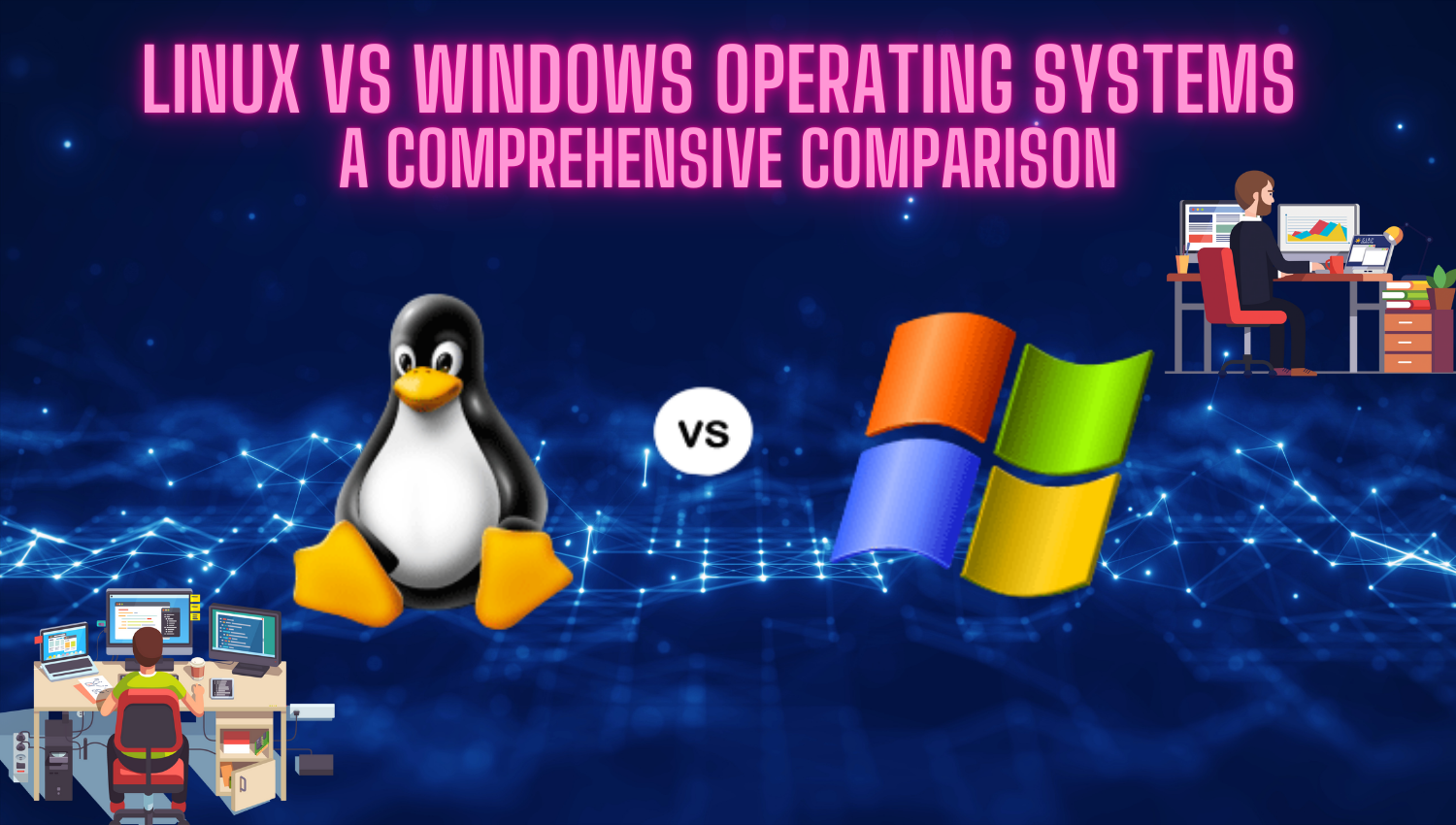Introduction
Operating systems are an essential part of our computers, serving as the backbone for software applications and hardware management. Among the myriad of operating systems available today, Linux and Windows stand out as two of the most popular choices, utilized by individual users and organizations alike. This article delves into a comprehensive Linux vs Windows comparison, exploring their historical development, performance metrics, usage areas, community support, and update mechanisms. By examining these aspects, we aim to illuminate the strengths and weaknesses inherent in each system, thereby assisting you in determining which operating system aligns best with your specific needs.
Learning Objectives
By the end of this article, you will have learned:
- The historical evolution of Linux and Windows.
- Key differences between the two operating systems regarding performance, community support, usage areas, and updates.
- The effectiveness of each operating system for various use cases.
- A detailed comparison table outlining the advantages and disadvantages of both Linux and Windows.
- How to make an informed decision regarding the most suitable operating system for your requirements.
What Are Operating Systems?
Operating systems (OS) are complex software that manage computer hardware and act as intermediaries between users and hardware components. Their primary functions include:
- Memory management: Allocating memory space for applications.
- File system management: Organizing data storage and retrieval.
- Hardware device control: Managing communication between the OS and hardware peripherals.
- User interface provision: Offering a graphical or command-line interface for user interaction.
While numerous operating systems exist today, Linux and Windows represent two distinct philosophies and user bases.
History of Linux
Linux was created in 1991 by Linus Torvalds, a student at the University of Helsinki. Torvalds aimed to develop an operating system akin to Unix but with an open-source approach that would allow anyone to contribute. The open-source nature of Linux has facilitated its evolution into a vibrant ecosystem, continually enhanced by contributions from developers worldwide. Today, Linux is widely utilized in various domains, including mobile operating systems like Android, web servers, cloud infrastructures, and even supercomputers. Its flexibility allows users to customize their experience significantly.
History of Windows
In contrast, Windows was launched by Microsoft in 1985 as one of the first operating systems featuring a graphical user interface (GUI). Over the years, Microsoft has released numerous versions of Windows, each iteration introducing new features and improvements in user experience and software compatibility. Windows has established itself as the dominant operating system among personal users, businesses, and institutions globally. Unlike Linux, Windows operates on a commercial model requiring users to purchase licenses for its use. Its closed-source nature means that only Microsoft has access to its source code.
Linux vs Windows Comparison
| Feature | Linux | Windows |
|---|---|---|
| Licensing | Open-source; free to modify and redistribute. | Commercial license; requires payment; closed-source code. |
| User Interface | Multiple desktop environments (e.g., GNOME, KDE) allow extensive customization. | Single desktop environment; user-friendly but limited customization options. |
| Software Compatibility | Supports many applications; some exclusive to Windows can run via Wine or virtualization. | Extensive software support; many commercial programs developed exclusively for Windows. |
| Security | Generally more secure; open-source allows rapid identification and patching of vulnerabilities. | More susceptible to malware; regular security updates provided but still a frequent target for threats. |
| Performance | Efficient on older or low-resource devices; lightweight distributions available. | Optimized for modern hardware; typically consumes more resources than Linux. |
| Usage Areas | Widely used in servers, supercomputers, embedded systems; favored by technical users for development tasks. | Commonly used in personal computing environments; preferred in business settings and gaming due to broad software support. |
| Community Support | Robust open-source community offers fast assistance through forums and online resources. | Official Microsoft support along with third-party resources available for help. |
| Updates | User-controlled updates; frequent updates can be managed at will. | Automatic updates are standard; users may find it inconvenient as they cannot always delay them. |
Performance Comparison
When evaluating performance between Linux and Windows, several factors come into play:
- Efficiency: Linux is often praised for its efficiency across various hardware configurations. It can run smoothly on older machines due to its minimal resource requirements[2]. This makes it particularly attractive for developers who need stable environments without demanding hardware specifications.
- Resource Management: Windows has made significant strides in optimizing resource management with recent versions like Windows 10 and 11[2]. However, it remains more resource-intensive than Linux due to its GUI complexities and background services necessary for broad compatibility.
- Gaming Performance: Recent benchmarks have shown that certain gaming-focused Linux distributions can outperform Windows in specific scenarios[3]. This trend highlights the growing capability of Linux in areas traditionally dominated by Windows.
Conclusion
In summary, both Linux and Windows present unique advantages tailored to different user needs. Linux appeals to those seeking flexibility, customization options, and a robust security profile—ideal for technical users or those working in server environments. Conversely, Windows is often favored by casual users who prioritize ease of use and extensive software compatibility—especially in business contexts or gaming scenarios.
Ultimately, your choice between these two operating systems should align with your specific requirements—whether you value open-source flexibility or prefer the user-friendly nature of a commercial product like Windows.

